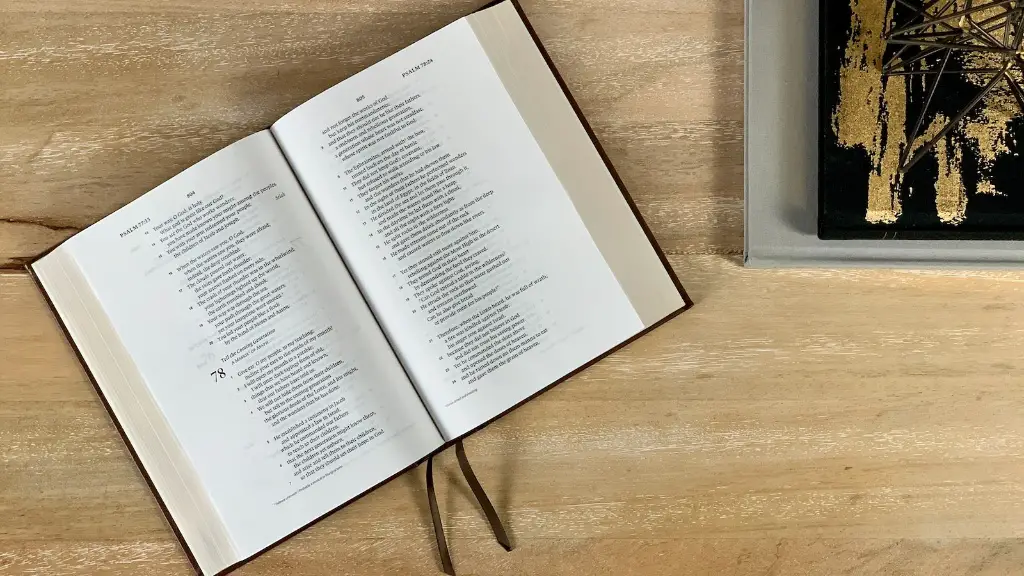Speak it loud: Exploring Spoken Word Poetry
Spoken word poetry is an expressive art form that celebrates the beauty of language and explores what it can do. It uses rhythm, emotion and the spoken word to tell stories and create powerful experiences. Spoken word is a style of writing and performance that has been around for many years, but has seen a surge in popularity recently, thanks in part to the internet.
Spoken word is unique in that it combines the power of poetry with the energy and emotion of performance. While spoken word poetry is often performed, it is also meant to be read and enjoyed silently as written text. Spoken word poets use words to express their feelings, thoughts and opinions, making it a powerful and personal type of art.
Spoken word poetry is distinguished from traditional poetry in several ways. Most notably, spoken word poetry is often written and performed in the present tense, unlike traditional poetry, which tends to be written in the past or future tenses. In spoken word, the focus is on capturing the moment and expressing it in the most powerful way.
Spoken word poetry often has a conversational style, even if the poem isn’t necessarily being spoken to someone directly. This allows the poem to flow more naturally than a more traditional poem. It also encourages the audience to feel like they are part of the conversation and that the poet is speaking to them directly.
Spoken word poetry also tends to have a more casual form than traditional poetry. Many spoken word pieces are written in free-verse, without the strict structure of traditional forms. This freedom allows poets to express themselves more personally and quickly, which can create a powerful connection with the audience.
Spoken word is also distinguished by its use of rhythm, rhyme and repetition. Poets often use these techniques to create a more engaging and memorable piece. The use of rhythm also helps to distinguish spoken word from traditional poetry, as spoken word has a more intentional rhythm and energy.
There is no one right way to approach spoken word poetry. Each poet will bring their own style, perspective and emotion to their work. But the best spoken word pieces usually have a strong point of view, a thoughtful use of language and an engaging performance style.
Performing Spoken Word
Spoken word poetry is not just written – it is performed as well. While spoken word pieces can be just as powerful when read, the performance can offer an even more intense experience. On stage, the poet can use their body language, tone and vocalization to bring the poem to life in ways that would not be possible on the page alone.
Spoken word performers often make use of physicality, facial expressions and vocal dynamics to give their words more emotion and power. They might use repetition of certain phrases or words, pause at poignant moments or even switch between multiple voices.
Spoken word performers also often use improvisation and audience participation to create more dynamic performances. This allows them to capture the energy of the audience and draw them into their world.
Performing spoken word also requires the performer to have a strong connection to the work and to be able to project that energy onto the audience. It can be difficult to do this, but it is an important part of creating a powerful spoken word piece.
The Benefits of Spoken Word
Spoken word is a powerful form of self-expression that can help us explore and make sense of our emotions and experiences. It can also be a way to explore difficult topics, such as social justice or mental health, and communicate them in ways that are both meaningful and accessible.
Spoken word can also be a form of therapy. By allowing us to express our emotions and stories through words, it can help us to process our experiences and make peace with them.
Additionally, spoken word can help us connect with others and build community. By sharing our stories and experiences, we can create a sense of understanding and empathy with one another.
Spoken Word Around the World
Spoken word is not limited to any one culture or language – it can be found around the world. While different cultures may have different styles and themes, the use of spoken word to express emotion and tell stories is a universal language.
Throughout history, spoken word has been used to express political views, to tell stories and to share culture. In some cultures, spoken word forms a central part of celebrations and rituals.
Today, spoken word is used in many countries as a form of activism and protest. Poets around the world use spoken word to speak out against injustices and highlight social and political issues. By combining their words with performance and emotion, spoken word poets can create powerful and lasting messages.
Spoken Word and Technology
In recent years, technology has made it easier to create and share spoken word poems around the world. Poets can record their performances and share them on social media, giving their words a wider reach. Technology has also made it easier to find and connect with other spoken word poets, creating an even larger and more diverse global community.
The use of technology has also allowed spoken word poets to experiment with different formats and styles. From podcasts to videos, technology has opened up new ways for poets to express themselves.
Modern Spoken Word
Spoken word has evolved over the years, and the modern spoken word scene can include anything from traditional performance poetry to abstract soundscapes. Today, spoken word is still used to share stories and evoke emotion, but the forms it takes are limitless.
At the same time, spoken word has become more accessible and inclusive. More people than ever are embracing this art form and using it to express themselves. Whether they are at a local open-mic night or performing at a festival, spoken word poets are finding new ways to have their voices heard.
The Influence of Spoken Word
In recent years, spoken word has had an increasing influence on the world of music. Rappers, singers and songwriters have been taking inspiration from spoken word poets, infusing their lyrics with more emotion and meaning.
Spoken word is also often seen in theater and film. Films such as “Hamilton” and “Lemonade” have taken inspiration from spoken word poets and incorporate their work into their storytelling.
At the same time, spoken word is being used to explore themes in other mediums, from dance to visual art. Poets are collaborating with dancers, painters, sculptors and other artists to create works that explore the power of language in new ways.
The Power of Spoken Word
Spoken word has the power to bring people together and make them feel seen and heard. It can be used to challenge assumptions and highlight issues, but it also has the power to heal and bring joy.
In a time when words can feel like weapons, spoken word reminds us of the beauty of language and its potential to create understanding and unity. It reminds us that there is power in a shared story and that words can still be a source of hope and inspiration.


